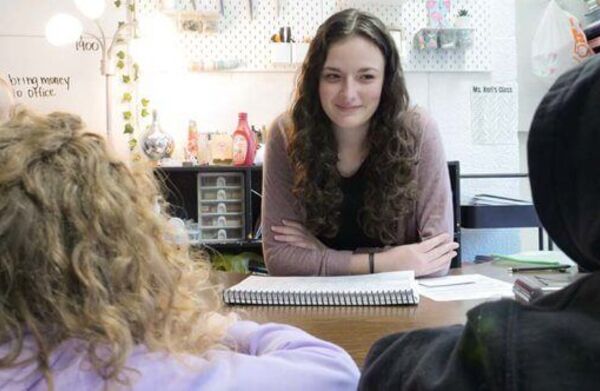Posted on
Q&A with Dr. Thea Williams-Black: How Tougaloo College mobilized teacher-candidates as literacy tutors in Mississippi
Categories: Teaching Practice, Policy and Advocacy, Pathways into Teaching
Deans for Impact is supporting a variety of state and federal initiatives designed to leverage future teachers as tutors for students in high-need or hard-to-staff schools. In this blog post, we explore what such an initiative looks like and how it might be expanded. We spoke with Dr. Thea Williams-Black, Dean of the Division of Education at Tougaloo College in Mississippi, to learn about the college’s tutoring partnership with Jackson Public Schools.
What kind of tutoring work is going on at Tougaloo College?
We have a grant that was funded by the Phil Hardin Foundation that is allowing us to develop a literacy lab. The grant allowed us to fix the lab up to look like a classroom setting with individualized tutoring sections. We partner with a school within the Jackson Public Schools and bus students to Tougaloo College for tutoring in reading, one-on-one, by our college students in the Division of Education.
Because of COVID, we have had to transition into a Zoom world. So, now, the tutors and students log in on Zoom, and we put them into breakout sessions to work together. They meet two times a week for an hour. That’s how we’ve been implementing tutoring during the pandemic, and hopefully in August we can go back into the classroom.
What’s the value to the teacher-candidates of working as tutors?
I wanted our candidates to be able to work with a set of students throughout a duration. I wanted them to be able to see, ‘This is where the students started, and because of the one-on-one help and the tutoring you provided working on their weaknesses, you were able to move the student to this level.’ That was our goal — to one, move the growth of the elementary students up, and two, for our candidates to develop the skillset to look at the student data and analyze what a child needed for growth to take place. I think it was amazing for them to come up with the lesson plan, and tutoring provided them with experience they wouldn’t have gotten otherwise.
Did this tutoring opportunity allow teacher-candidates to meet state requirements for early field experiences?
Yes, it did. Candidates were able to fulfill their field experience requirements through this tutoring. It was initially aligned with our diagnostic and prescriptive reading course. Because we’re in the COVID world, this year we also aligned it with all of our literacy courses, because we needed a way for those candidates to get their hours. We were able to bring in more students because of that.
What advice would you give to another university interested in launching a project like this?
Make sure you’re very organized and keep the lines of communication open. Develop a strong relationship with your partner school and build personal relationships there — don’t just send an email, try to pick up the telephone, or schedule a Zoom call, or stop by in-person to explain what you’re planning. It also helped for us to develop relationships at the district level — for example, I had to reach out to the transportation director to ask about bussing students to campus. And all of this was built on a strong relationship with the superintendent. He has come on campus and given our students pep talks before, which helped us to develop a good relationship. It’s all about building strong relationships.
How would you use additional federal and state funding to support this tutoring initiative? For example, if legislation like the PATHS to Tutor Act passed, how would that affect your work?
We could blow this up! There are several schools in the surrounding area by Tougaloo College whose students are hurting right now when it comes to literacy. We could reach out to those schools and not just focus on one school — that would be a blessing. More funding could also provide us with a larger classroom. With more space, we could enroll more students. We would also be able to purchase more resources to meet students’ needs. If we had additional funding, we could take this to a whole new level!
Anything else you’d like to add?
I think a lot of teacher-education programs need to look into doing tutoring like this. It not only helps the students in the K-12 arena, but it helps the teacher-ed students in being able to develop those relationships. It’s teaching them the skills to be able to work with students one-on-one. Most of the time, when we send them out into the field, they’re with the whole classroom or have a small group, but to be able to develop a one-on-one relationship with students is really important as well.
To learn how your organization can support efforts to provide tutoring to students while simultaneously strengthening the teaching profession, complete the form below:
Related Stories:


Blog
Vetted Texas Tutor Corps: A new pathway to utilize future teachers as tutors
What will it take to provide high-impact tutoring to more than million students in Texas?
September 23, 2021

Blog
Marrying evidence with practice: how an Illinois-based partnership seeks to build tutor and teacher quality
National Louis University and Reading Power are partnering to mobilize aspiring teachers as tutors.
July 11, 2024





